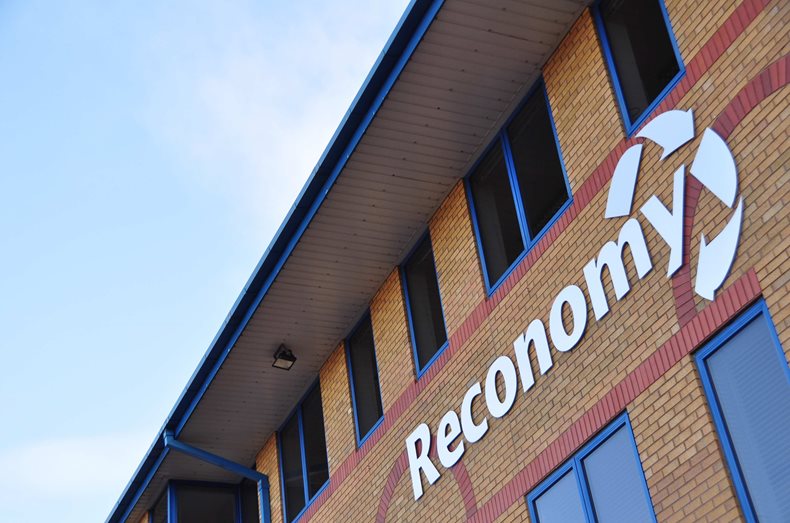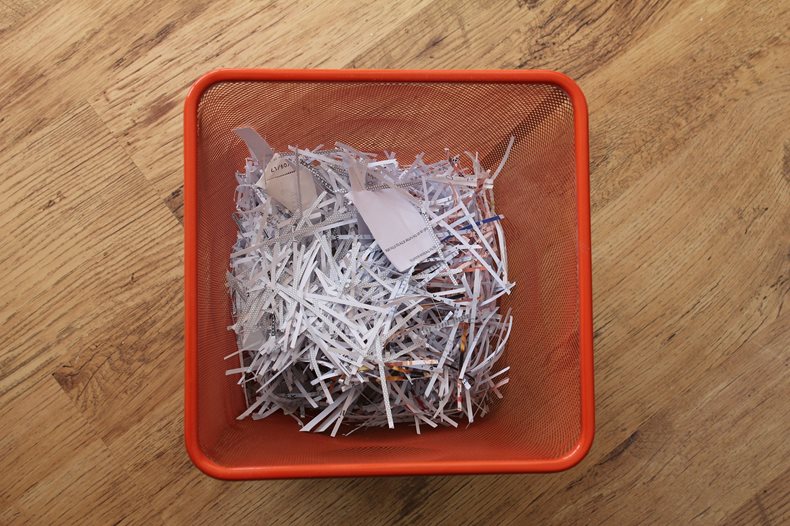While the overall look of a wrap or graphics will always be the most important factor for wrapping companies, there are a number of other considerations to keep in mind if you are to stand out in the modern market.
One of the most important factors in recent years, and for the foreseeable future, is that of sustainability. Simply put, if you don’t pay enough attention to this as a business and within your production setup, then you risk losing work to other, more green-mind companies.
Offering food for thought, we speak with a number of market specialists about some of the simple, and often cost-effective, steps your business can take to become more sustainable.
Sustainability value
First up, Reconomy is a business that specialises in waste management services, working with clients to help them recycle and dispose of waste in a responsible way. With some of its clients working in the print sector, Jon Hutton, director at the business and responsible for print manufacturing customers, said there are several factors wrappers should keep in mind when discussing sustainability.
“There are two primary factors that makes waste produced from vehicle wrappers naturally poor for the environment,” Hutton said. “The first of these is the very nature of materials that are used to wrap vehicles don’t lend themselves to being environmentally friendly. PVCs, adhesives, and siliconized papers
 Caption: Reconomy specialises in operating services to the vehicle wrap industry
Caption: Reconomy specialises in operating services to the vehicle wrap industry
“Secondly, the low volumes of wastes produced result in the disposal route being comingled into general waste, which ultimately ends up as landfill or incineration.
“Sustainability value is becoming higher for businesses and the need to demonstrate sustainable practices when it comes to waste and resource management. Sending waste to non-renewable routes such as landfill and incineration is bad for the environment and renewable routes that keep material and resource in use is better.”
So, what can wrappers do? Hutton said a simple first step would be to have a collection service in place for the ‘mainstream’ recyclable waste produced such as cardboards, papers, shrink-wrap and aluminium cans.
Hutton also recommends wrappers speak with their material suppliers to establish whether more environmentally friendly options are available. This may include considerations around energy usage to manufacture, carbon footprint and waste initiatives in place.
In addition, he said that talking to waste suppliers such as Reconomy will allow wrappers to investigate the services and treatment options available around the wastes produced.
“Reconomy specialises in operating services to the vehicle wrap industry that is focused on maximising recycling, eliminating landfill, and adhering to the waste hierarchy, whilst minimising waste costs,” Hutton said.
“The single largest volume of waste typically produced is siliconised papers, which can be up to 70% of the overall waste output. This has always been a challenging material to recycle due to mainstream waste contractors not having a recycling route to market, as most papers mills aren’t set-up to handle the silicone.
“Reconomy are pioneers in finding recycling opportunities for challenging materials and have developed services that ensure silicone papers can be collected and recycled from wrappers facilities.”
Reconomy has developed an accreditation with FESPA UK that is being used throughout the digital print sectors and enables sites that are managed by Reconomy to receive the logo and become a member of FESPA UK. The accreditation enables sites to demonstrate their commitment to waste and recycling management and highlight their achievements.
Taking the initiative
As regulations, costs and services differ in countries around the world, it can be tricky to pick out specific options for wrappers. However, as alluded to by specialists at Reconomy, there are plenty of simple things available in almost all countries that staff can do when in the workplace to help improve the environmental credentials of the business.
The Recycle Coach, an education platform designed to advise users on how they can recycle more effectively, offers plenty of guidance on some of the steps employers and their staff can take in and around the workplace. While some of these may seem quite trivial, all of them will have a positive impact on the ‘greenness’ of your business.
“For decades, we have been told to reuse, reduce, and recycle to divert waste from landfill or incineration; so, we have,” the Recycle Coach said. “Yet, local recycling programs are in crisis.
“Recycling used to be less costly for local governments than disposal, but now costs are up to 5X higher. This is because contamination, which refers to all the things people put in their recycling bin that don’t belong. Contamination rates can be as high as 40% in municipalities across North America, threatening the continuation of local recycling programs.”
 Caption: Adding more bins around the workshop can make it easier for employees to recycle
Caption: Adding more bins around the workshop can make it easier for employees to recycle
For wrappers, they may want to consider adding more recycling bins around the workshop to ensure they are separating the material that can be recycled at early stage before it gets mixed up with other waste and your green opportunity is gone. Similarly, wrappers can look to invest in desktop recycling trays that will allow workers to collect and sort materials as soon as they have finished a certain part of the job.
The Recycle Coach also offers ‘Ask Milo’, a tool that can be used by employers and staff to find out if a certain material can be recycled. With thousands of options available in the tool, there is a good chance you will find the answers to your questions without too much trouble.
If you want to add a bit of fun to your green strategy, why not consider adding your own garden to the workplace? The Recycle Coach said this offers a way for staff to de-stress, while they can compost any food waster (banana skins, apple cores, orange peel etc) that may otherwise have gone to waste.
Finally, incentivise your staff. If you want to hit a certain sustainability target, do what you can to get your staff on board with the plan and offer them a reward if you are able to reach your goal.
To put it simply, there is plenty wrappers can do to not only sure they are disposing of waste responsibly and recycling where they can, all without having to break the bank. Keep your mind open to new ideas that can have a positive impact on your environmental credentials.